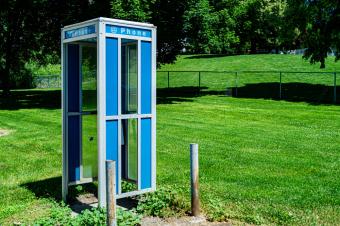
The United Way works with approximately 1,800 communities internationally to help charities and nonprofits fund needy populations. It's considered one of America's favorite charities by The Chronicle of Philanthropy. Sadly, this good reputation is used by scammers to take money from unsuspecting citizens with good hearts.
How Common United Way Scams Work
The United Way has reported that there are scammers who regularly use their name as part of their efforts to steal money from potential donors. The scam works as follows:
- You will receive an email, or in some cases a phone call, informing you that the caller is with the United Way. They may indicate they are a staff person or a volunteer.
- In some versions of the scam, the scammers contact you via Facebook and will friend several of the friends on your list, making them seem legitimate.
- The scammer will inform you that you are eligible for a cash grant from the United Way.
- They will ask you for personal information in order to process the grant. This will usually include information like your banking institution and account number, social security number, mailing address and even your social media password if contacted through Facebook.
- Once they gain this information, they can use it to get access to your bank accounts and siphon money out before you suspect there's a problem.
Who Is Targeted by the United Way Scam?
Scammers often target the elderly as they tend to be more socially isolated, less technologically adept and not as aware of the problems of online fraud. However, they also are increasingly focusing on people in the 20 to 29 age group. Scammers also tend to go after people during the holiday season when people are more likely to be in a giving mood. It's also a time when you're more likely to receive multiple legitimate charitable requests and can easily confuse a fake one with all the real ones coming in at the same time.
How You Can Tell It's a Scam
The United Way reports that you can easily tell that you are being scammed because staff and volunteers from the United Way will never contact anyone to inform them they are eligible for a cash grant. This is simply not how the United Way's charitable support process works. They would also never ask anyone for banking information or personal information.
Avoiding the United Way Scam
The United Way recommends that if you receive any unsolicited emails or phone calls like the ones described above, you should ask them for their contact information and inform them you will call them back. Then look up the information for the organization online and call them directly to verify. You can also call your local United Way Chapter. In addition, there are other steps you can use to protect yourself:
- Keep your settings on Facebook and other social media settings private.
- If someone contacts you on Facebook or other social media platforms and they seem suspicious and lists a mutual friend as a friend, contact that friend or friends to verify. Oftentimes people with less secure settings friend anyone who sends them a request, which is not a wise idea.
- Do not give donations with cash or bank transfers or by text.
- Do not give money to anyone solicitor who pressures you to give right away. Legitimate charities do not use scare tactics and this is a red flag.
- Another common way to confuse you is for the scammer to thank you for a previous donation. If you previously donated to an organization, you can inform them that you will give again the same way you previously did, such as by mailing them a check, and not through the solicitation email or call you are receiving at the moment.
- Check the Federal Trade Commission's website for lists of scams to see if you find one that matches what you received. Contact the FTC to report any scams that you receive as well as to local police.
- The American Association of Retired Persons also has a free helpline you can call at 877-908-3360 to report scams and get advice. You can also report scams on their website and sign up for a "Watchdog Alert" email to notify you of known scams.
Keep Your Data Safe to Avoid the United Way Scam
One of the unfortunate side effects of the growth of social media and the internet is the ease it gives scammers to find people to target. By keeping your social media accounts private, you can do a lot to keep your personal data safe. Make sure that you don't fall for scammers posing as the United Way by staying alert, asking questions, and recognizing when a solicitation is legitimate and when it is not. When in doubt, contact your local United Way chapter, the FTC or the AARP for help.







